
William Todd Tiahrt is an American politician who served as the U.S. representative for Kansas's 4th congressional district from 1995 to 2011. A member of the Republican Party, he was elected as part of the historic Republican Wave of 1994, defeating 18-year incumbent U.S. Representative Dan Glickman. He ran in 2010 for the United States Senate seat being vacated by Sam Brownback. He lost to fellow Republican U.S. Representative Jerry Moran of Hays, Kansas, 50%–45%.
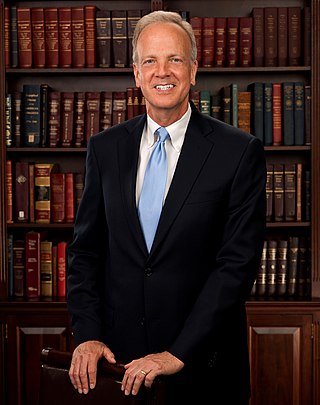
Gerald Wesley Moran is an American politician and former lawyer who is the senior United States senator from Kansas, a seat he has held since 2011. A member of the Republican Party, he was chair of the National Republican Senatorial Committee for the 113th U.S. Congress, during which he led successful Republican efforts in the 2014 election, producing the first Republican Senate majority since 2006. Previously, he was a member of the United States House of Representatives, representing Kansas's 1st congressional district.

The 1996 United States Senate elections were held on November 5, 1996, with the 33 seats of Class 2 contested in regular elections. Special elections were also held to fill vacancies. They coincided with the presidential election of the same year, in which Democrat Bill Clinton was re-elected president.

The Kansas Republican Party is the state affiliate political party in Kansas of the United States Republican Party. The Kansas Republican Party was organized in May 1859.

The 2008 United States Senate election in Kansas was held on November 4, 2008. Incumbent Republican U.S. Senator Pat Roberts won re-election to a third term.

The 2008 congressional elections in Kansas were held on November 4, 2008 to determine who would represent the state of Kansas in the United States House of Representatives, coinciding with the presidential and senatorial elections. Representatives are elected for two-year terms; those elected will serve in the 111th Congress from January 3, 2009 until January 3, 2011.

The 2010 United States Senate election in Colorado took place on November 2, 2010, alongside other elections to the United States Senate in other states as well as elections to the United States House of Representatives and various state and local elections. In December 2008, President-elect Barack Obama nominated incumbent U.S. Senator Ken Salazar as Secretary of the Interior. After Salazar resigned from his seat, Democratic governor Bill Ritter appointed Denver Public Schools Superintendent Michael Bennet to fill the seat.

The 2010 congressional elections in Kansas were held on November 2, 2010, and determined who would survive the state of Kansas in the United States House of Representatives. Kansas has 4 seats in the House, apportioned according to the 2000 United States census. Representatives are elected for two-year terms; the elected served in the 112th Congress from January 3, 2011, until January 3, 2013.

The 2010 United States Senate election in Utah took place on November 2, 2010, along with other midterm elections throughout the United States. Incumbent Republican U.S. Senator Bob Bennett was seeking re-election to a fourth term, but lost renomination at the Republican Party's state convention. Mike Lee proceeded to win the Republican primary against Tim Bridgewater and the general election against Democrat Sam Granato. As of 2024, this is the most recent U.S. Senate election in which a political party held the seat after denying renomination to the incumbent senator.
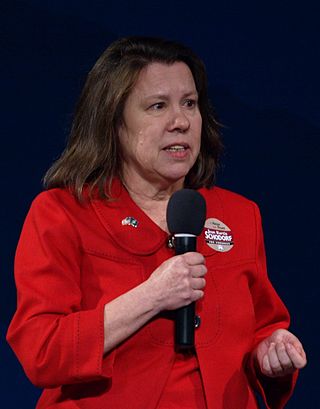
Jean Kurtis Schodorf is an American politician. She is known for being a three-term Republican Kansas state senator and was the Democratic Party nominee for Kansas Secretary of State in 2014. She was defeated on November 4, 2014 by incumbent Kris Kobach by a margin of 59%-41%.
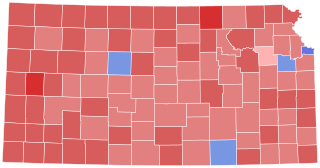
The 1996 United States Senate special election in Kansas was held November 5, 1996, concurrently with the presidential election and the regularly scheduled election for the state's Class 2 seat. Incumbent Republican U.S. Senator and Senate Majority Leader Bob Dole, the Republican nominee for president, had resigned on June 11, 1996, in order to focus on his presidential campaign. Lieutenant Governor Sheila Frahm was appointed to the seat upon Dole's resignation, but she was defeated in the primary by Representative Sam Brownback, who went on to win the general election over Democrat Jill Docking.

The 2014 United States Senate election in Kansas was held on November 4, 2014, to elect a member of the United States Senate to represent the State of Kansas, concurrently with other elections to the United States Senate in other states and elections to the United States House of Representatives and various state and local elections.

The 2014 Kansas gubernatorial election took place on November 4, 2014, to elect the Governor of Kansas, concurrently with the election of Kansas' Class II U.S. Senate seat, as well as other elections to the United States Senate in other states and elections to the United States House of Representatives and various state and local elections.

The 2014 United States House of Representatives elections in Kansas was held on Tuesday, November 4, 2014, to elect the four U.S. representatives from the state of Kansas, one from each of the state's four congressional districts. The elections coincided with the elections of other federal and state offices, including the 2014 Kansas gubernatorial election.

The 2016 United States Senate election in Kansas was held on November 8, 2016, to elect a member of the United States Senate to represent the State of Kansas, concurrently with the 2016 U.S. presidential election, as well as other elections to the United States Senate in other states and elections to the United States House of Representatives and various state and local elections. The primaries were held on August 2.
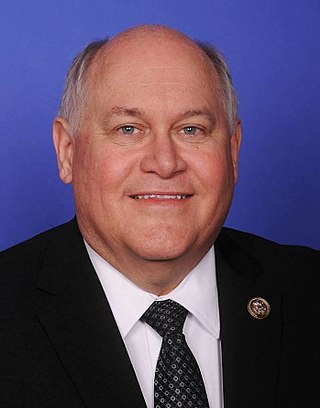
A special election was held on April 11, 2017, to determine the member of the United States House of Representatives for Kansas's 4th congressional district after the incumbent, Mike Pompeo, resigned because of his nomination by President Donald Trump as Director of the Central Intelligence Agency. Republican Ron Estes received 52.2% of the vote and won, while runner-up Democrat James Thompson lost with 46% of the vote.

The 2020 United States House of Representatives elections in Kansas were held on November 3, 2020, to elect the four U.S. representatives from the state of Kansas, one from each of the state's four congressional districts. The elections coincided with the 2020 U.S. presidential election, as well as other elections to the House of Representatives, elections to the United States Senate and various state and local elections.

The 2022 United States Senate election in Kansas was held on November 8, 2022, to elect a member of the United States Senate to represent the state of Kansas. Incumbent Republican Senator Jerry Moran was first elected in 2010, winning the seat vacated by Sam Brownback, and ran for re-election to a third term in office. Democrat Mark Holland, the former mayor of Kansas City, was Moran's opponent in the general election.

The 2022 Kansas gubernatorial election took place on November 8, 2022, to elect the governor of Kansas, with primary elections taking place on August 2, 2022. Governor Laura Kelly ran for re-election to a second term, facing Republican State Attorney General Derek Schmidt in the general election.
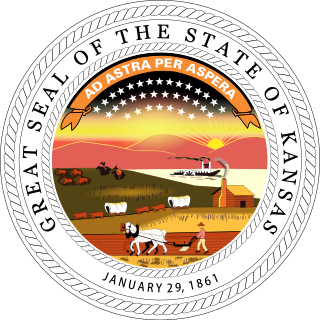
The 2024 United States House of Representatives elections in Kansas will be held on November 5, 2024, to elect the four U.S. representatives from the state of Kansas, one from each of the state's congressional districts. The elections will coincide with the U.S. presidential election, as well as other elections to the House of Representatives, elections to the United States Senate, and various state and local elections. The primary elections took place on August 6, 2024.
























